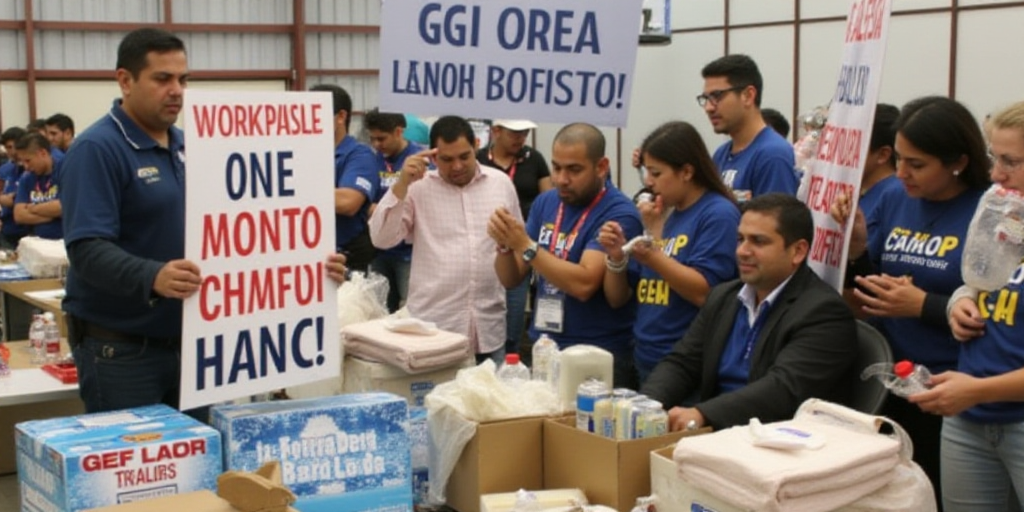Background and Key Players
In Jalisco, Mexico, a reform to implement a 40-hour workweek is under discussion. The third forum on the matter, organized by the Secretaría del Trabajo y Previsión Social (STPS), brought together representatives from the agropecuario (agricultural) and comercio (commerce) sectors to voice their positions.
Agropecuario Sector
Juan Pablo Molina Baranzini, Vicepresidente de Bienestar Laboral del Consejo Nacional Agropecuario, supported the CTM’s proposal to review the ISR (Income Tax) table applied to overtime hours. This adjustment would ensure that workers receive a larger portion of the benefits from their extra hours, rather than losing them to taxes.
Molina Baranzini emphasized the importance of a gradual implementation, starting in 2026 with a reduction of one hour the following year. He clarified that this gradual approach aims to provide companies with time to invest in technology and processes that boost productivity without compromising competitiveness or formal employment.
The agropecuario sector also called for extending and improving tax benefits for rural employers and temporary workers, which have been crucial in promoting formal employment. They aim to strengthen this instrument to offset the initial costs of reform and prevent businesses from falling into informality.
Similar to the proposal from the business sector, represented by chambers, the agropecuario sector advocates for a “Bank of Hours” system. This would allow permanent employees to work overtime during peak seasons and compensate for those hours during slower periods, as permitted in countries that have already reduced working hours, such as Chile and France.
Additionally, they emphasized the need for legal flexibility in working hours, as agricultural work cannot be confined to urban schedules. The biological cycle of sub-crops requires flexibility to work on weekends or adjust for weather conditions.
Comercio Sector
Diego Corsío Barto, Presidente de la Asociación Nacional de Tiendas de Autoservicio y Departamentales (ANTAD), highlighted that 78% of employees in the commerce sector work more than 40 hours. This implies a challenge, as some chains within ANTAD already operate 24/7 due to customer service, availability, and supply chain requirements.
Corsío Barto explained that transitioning to a 40-hour workweek would necessitate hiring an additional 14.7% of employees immediately to maintain current operations. However, this change would also need to address the shortage of talent.
Despite this, Corsío Barto proposed maintaining exceptions for positions of trust, direct positions, and high-level management roles. He acknowledged that these roles would not face restrictions on working additional hours, as their functions are critical to operations such as logistics, distribution, storage, and transportation.
Government Response
Marath Bolaños, Secretario del Trabajo y Previsión Social, assured participants that the government would not retreat from efforts to maintain diurnal, mixed, and nighttime work schedules, overtime hours, and even vacation time.
Key Questions and Answers
- What is the main topic discussed in this article? The article discusses the ongoing reform to implement a 40-hour workweek in Jalisco, Mexico, and the demands from the agropecuario and comercio sectors.
- Who are the key players mentioned in this article? The key players are Juan Pablo Molina Baranzini from the agropecuario sector and Diego Corsío Barto from the comercio sector, along with Marath Bolaños, Secretario del Trabajo y Previsión Social.
- What are the primary demands from the agropecuario sector? The agropecuario sector demands a review of the ISR table for overtime hours, an extension and improvement of tax benefits for rural employers and temporary workers, a “Bank of Hours” system, and legal flexibility in working hours.
- What concerns does the comercio sector express regarding the 40-hour workweek reform? The comercio sector is concerned about the need to hire more employees and addressing the shortage of talent while maintaining flexibility in work schedules for critical functions.
- What assurance did the government provide regarding the reform? The government, represented by Marath Bolaños, assured participants that they would not retreat from efforts to maintain diurnal, mixed, and nighttime work schedules, overtime hours, and vacation time.






